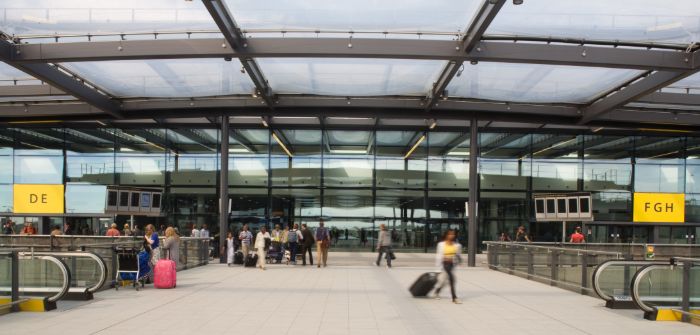For the first time, London Gatwick Airport has recruited an equal split of male and female engineering apprentices.
The new apprentices will start the four-year mechatronics program in September, with their first year taking place exclusively at East Surrey College. They will study practical and theory-based subjects, working toward a BTEC Level 3, before combining their studies with practical days at the airport in their second year.
Aged 16 to 18, the new apprentices all come from schools and colleges within the region: Harry Dowling-Woods from Crawley College, Zoe Potts from Reigate College, Finlay Toner from Northbrook MET in Worthing, and Abi Davies, a former student of Millais School in Horsham. At Millais School, Davies has come through Gatwick’s Women into STEM program that has been running since 2018.
Davies said, “Only 12% of UK engineers are female. I want to be a part of changing this and show girls that there are companies paving the way for female engineers. I want to help break the gender stereotypes and show young girls like me that they can be engineers and work in STEM roles.”
Gatwick currently has 16 apprentices across four cohorts. The five apprentices graduating from Gatwick’s program this year – Liberty Frankland, Jack Hobbs, Max Brown, Glenn Minshall and James Tandy – were all offered permanent roles at the airport. Their new positions commenced on September 6 in Gatwick departments including baggage, airfield, heating, ventilation and air-conditioning, and specialist systems.
Gatwick is also continuing its work across two school programs – Primary Engineering and Engineering Tomorrow – to promote STEM subjects and the career opportunities provided by the airport. Gatwick engages 15 primary schools and five secondary schools through Primary Engineering; Engineering Tomorrow sees projects such as bridge construction, water treatment and aerodynamics delivered to around 500 14-16-year-olds across the region every year.
Tony Yates, head of engineering at Gatwick Airport, added, “Diversity within engineering and STEM subjects is vital for driving innovation and continuous improvement. It’s important that young children – especially girls – are made aware of the opportunities while at the same time dispelling stereotypes.”


